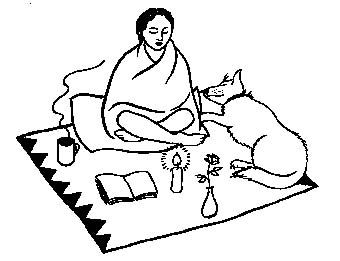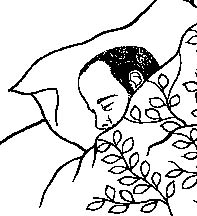Contents
Overwhelmed by the World?
According to Aron, highly sensitive people, or HSPs, typically share a number of characteristics: They're highly aroused by new or prolonged stimulation; strongly reactive to external stimuli such as noise and light; intolerant of pain, hunger, thirst, caffeine, and medication; susceptible to stress-related and psychosomatic illnesses; and deeply affected by other people's moods and emotions. They are also highly intuitive; able to concentrate deeply (but do best without distractions); right-brained, and less linear than non-HSPs; highly conscientious; especially good at tasks requiring vigilance, accuracy, and speed; and excellent at spotting and avoiding errors.
"Sensitivity is an inherited trait," Aron says, "that tends to be a disadvantage only at high levels of stimulation." Every thing is magnified for HSPs. What is moderately arousing for most people, she explains, is highly arousing for the highly sensitive. And what is highly arousing for others is off the charts for HSPs, who reach a shutdown point once they attain a certain arousal level.
Aron's research has convinced her there are genetic and biological bases for extreme sensitivity. The brains of HSPs, she says, differ from those of other individuals. Studies have shown that they have more activityand blood flowin the right hemisphere of the brain, which indicates that they are internally focused rather than outwardly oriented. The balance between two opposing systems of the brain may account for heightened sensitivity. One system, the behavioral activation system, is hooked up to sections of the brain that propel people into new situations, making them curious and eager for external rewards. Another system, the behavioral inhibition system, compares present situations to past ones before proceeding and alerts the body to be cautious in risky situations. Aron believes that when the behavioral inhibition system in a person's brain is the stronger of the two systems, sensitivity results.
Just as many men as women are highly sensitive.

Most important to Aron is her finding that HSPs are inclined to be anxious, depressed,
or shy only when they have suffered troubled childhoods. The strong "inhibition
system" causes real inhibition only when personal history makes an HSP feel
there are good reasons to be inhibited. Thirty percent of HSPs are actually extroverts.
HSPs process information differently, "more deeply", than others. Because they're especially good at navigating through information, they're predisposed to work well with information technology and the Internet, which gives them an advantage in our present society. HSPs also have uncommonly sensitive nervous systems and a more reactive immune system. HSPs are 30 percent more likely to have allergies.
They often have decreased serotonin levels, which may result from the stress of repeated overarousal, although the jury's still out on that one. And contrary to what our cultural assumptions may suggest, the HSP trait does not favor one gender: Just as many men as women are highly sensitive.
HSPs' high degree of sensitivity and awareness of subtle clues contributes to their intuitive abilities. "You 'just know' how things got to be the way they are or how they are going to turn out," Aron says. "It can be wrong, of course, just as your eyes and ears can be wrong, but intuition is right often enough that HSPs tend to be visionaries, highly intuitive artists, or inventors, as well as more conscientious, cautious, and wise people."
Aron believes that, historically, HSPs have had an important function in Indo-European cultures, which traditionally have spread their influence through aggressive domination under the guidance of strong, militaristic leaders. "The most long-lasting happy Indo-European cultures have always used two classes to govern themselves the warrior kings and the priestly advisers," she says. "HSPs tend to fill that adviser role. They are the writers, historians, philosophers, judges, artists, researchers, theologians, therapists, teachers, and plain conscientious citizens. What they bring to any of these roles is a tendency to think about all the possible effects of an idea."
But don't let the word adviser mislead you: HSPs are not always confined to waiting in the wings. Abraham Lincoln, Jimmy Carter, Ingmar Bergman, and Steven Spielberg are a few of the figures Aron thinks fit the profile of highly sensitive people. Still, few people are necessarily anxious to be identified as HSPs. Because society often doesn't understand or appreciate the trait, many of the highly sensitive shy away from being labeled that way. In fact, HSP traits are much more accepted in some cultures than in others. For example, a study comparing Chinese and Canadian elementary schoolchildren found that sensitive, quiet children in China were among the most popular of their peers. In Canada, they were among the least popular.
Aron's interest in HSPs began with her awareness of her own "difference." "I always thought there was something the matter with me," she recalls. When she felt that she was overreacting to a medical procedure a decade ago, she consulted a therapist who suggested she might be "highly sensitive." Aron, at the time a psychologist at the University of California at Santa Cruz, became intrigued by the notion that certain people might have higher levels of sensitivity than others and decided to do some research.
Initially, she found only three studies using the term sensitivity, but later realized that sensitivity was being studied by researchers using other terms. Within a week after a local paper ran an article about her, approximately 200 people contacted her to speak about HSPs. She prepared a lecture, and, after seeing the intense interest, she developed a course. In response to numerous requests to put her research into a book, she wroteThe Highly Sensitive Person. She followed up with The Highly Sensitive Person's Workbook (Broadway, 1999) and The Highly Sensitive Person in Love (Broadway, 2000).
The attention that has come with the publication of her books has created conflicts for Aron: "HSPs tend to please people. We're aware of what other people need, and it's hard not to give it to them." So she has adopted lifestyle changes that enable her to combat stress, avoid overarousal, and balance her life. In addition to meditating with her husband for two hours daily and reserving lots of time to spend in nature, she schedules her commitments carefully and won't yield to external pressures to take on more work than she can handle. She advises fellow HSPs to adopt strategies that help them cope and protect themselves. That's what her work is about "finding ways to be out there, and to be 'out there' in our own way."

Ten Ways for Highly Sensitive People to Take Care
If you're an HSP, you must contend with the fact that 80 percent of the people around you are not HSPs; if you conform to their style and rebel against or ignore your sensitivity, you will suffer. 0verarousal is the Achilles heel of HSPs, so you need to be expert at avoiding, surviving, and recovering from it. Following are some ideas for relieving overarousal and giving yourself the rest or time alone you need. To many people these recommendations may seem excessive; for HSPs they're essential.
ï Spend eight to ten hours in bed each day, sleeping or not, and set aside two hours of additional downtime to meditate, contemplate, or potter, and one hour for exercise outdoors.
ï Take the equivalent of one month off each year. It is preferable to scatter the time throughout the year.
ï Meditate daily.
ï Practice abdominal breathing. Take a normal but slow breath in through your nose, then breathe slowly out through your mouth as if you were blowing out a candle. This automatically makes your next breath come from the abdomen. The point is not to breathe out through your mouth all the time, but to do this occasionally to re-establish abdominal breathing for a quick calming down.
ï Create a secure, pleasing place in your house for meditation, prayer, reading, and other kinds of private time. Make it beautiful but simple. Bring in flowers, a candle, incense, or essential oils to give it a soothing scent. Buy a piece of silk or a blanket of natural materials that you can wrap around yourself or sit on. Take your favorite tea or other drink to sip there. Please all of your senses.
ï Keep a journal to encourage reflection and a broader perspective on what you are doing with your time.
ï Always keep a protein snack with you perhaps string cheese, a hard-boiled egg, a protein bar, a can of tuna, some nuts. Being overaroused can deplete your blood sugar, and low blood sugar leads to being more easily overaroused.
ï Keep earplugs with you to use when you are exposed to loud noise.
ï Spend time regularly with animals and plants, and near water or forests.
Adapted from The Highly Sensitive Person's Workbook by Elaine N. Aron, ph.D. (Broadway, 1999)
______________________________________________________________
From The Utne Reader, Nov-Dec 2000. Bimonthly. 1624 Harmon Place, Minneapolis, MN 55403, USA. www.utne.com
Reprinted with permission.
Previous - Next
Contents